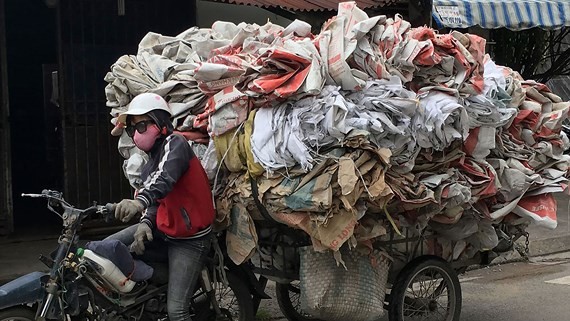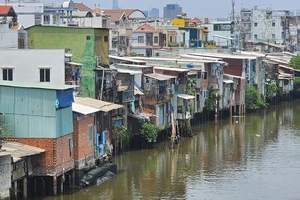
There’s literally 41 kilogram of plastic garbage for every Vietnamese person annually and it is predicted to rise to 45 kilogram by 2020 while around 10 per cent of the city’s plastic is recycled - a problem because most plastics are not biodegradable.
Single-use plastics are the worst offenders and include plastic bags, food packaging, and straws. According to environment experts, most plastics are not biodegradable and typically take more than hundreds years to degrade.
The Department of Natural Resources and Environment in HCMC said daily activities produce over 9,000 tons of garbage citywide; of the amount, 6,000 tons are buried in landfills while the rest is treated by Tam Sinh Nghia and Vietstar.
The two waste treatment companies said 60 tons of plastic waste are mixed with other litter so they are very dirty; subsequently, the amount of soiled plastic items are just recycled low quality items. Some recyclable things are not used any more; they are buried.
Firms said that city dwellers don’t sort solid trash well; therefore, it not only takes a long time in recycling, resulting polluted environment.
Moreover, firms complained of ineffective environment regulations. Specifically, the Ministry of Natural Resources and Environment has issued environment tariffs of 150-200 percent on environmentally unfriendly plastic bags but the government failed to properly implement it since many environmentally unfriendly plastic bag manufacturers have not imposed tariffs
Accordingly, a representative of Vafaco packaging Company said competition between environmentally friendly plastic bag and their rival firms which produce environmentally unfriendly plastic bags is unhealthy.
In reality, environmentally friendly plastic bags are just used in commercial centers, supermarkets and firms taking heed to protect environment.
The consumption of degradable plastic bags just accounts for 1 percent in the market share.
Plastic bags are convenient for daily activities. Consequently, it is overused plus low awareness of environment protection result in bad effects on environment, especially plastic bag is a culprit of inundation in urban.
Yearly, HCMC spends VND700 billion ($30,149,825) on collecting trash from rivers and canals and nearly VND1,132 billion for repair drainage system.
To limit plastic bags, firstly, environment tariffs must be imposed on manufacturers which still produce imperishable plastic bags, said a representative of Vafaco. Secondly, those leave litter in public places will receive severe fine. There should be sanction on organizations and households which don’t sort out trash.
























